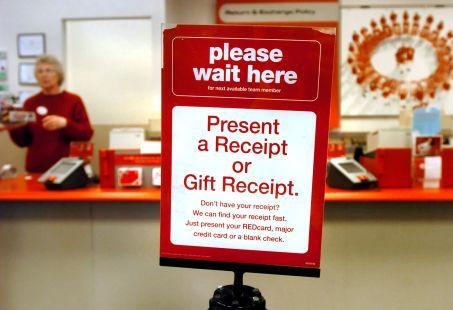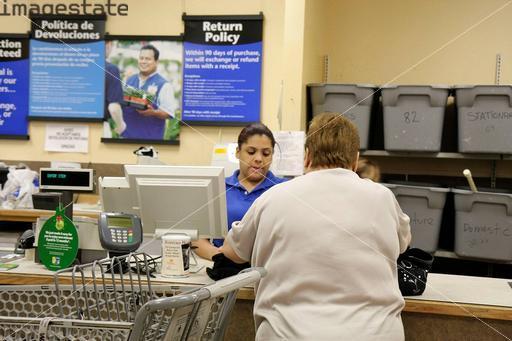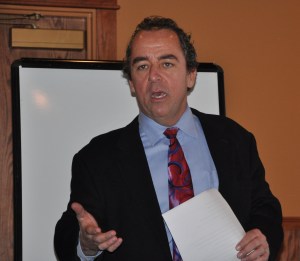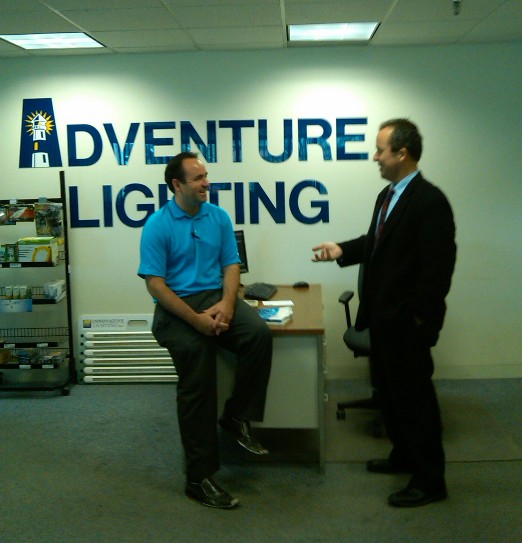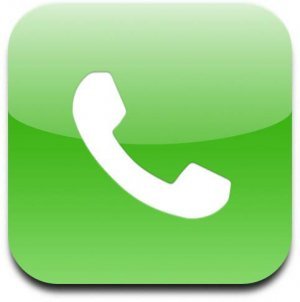Hello shoppers...
You get in line behind 1,426 people at the customer service counter at CompuBarn. You are carrying a 63 pound box stuffed with an iPad that electrocuted Pookie when the dog tee-teed on it. Your arms, feet and head throb to the beat of Grandma Got Run Over By A Reindeer playing overhead. You're next, 13 days later. You are waited on by a gum-chomping 2o-something who says, "Can I help you?" You fall over and die. You are buried in Hoboken, New Jersey in a grave marked with your iPad, that stray dogs pee on.
That's how we all go.
"Can I help you?" - which is a closed ended question - which is a question that requires a "yes" or "no" answer - has killed more retail spending than every recession, depression and argument on the way to the mall over whether Grand Theft Auto IV is an appropriate gift for a 10-year-old, combined.
Between now and midnight December 24th, we shoppers will be asked dozens of closed-ended questions by employees working inside the stores we'll shop: "Can I help you?" "Is that all?" "Find everything alright?" "Anything else?" "Aren't you that minor blogger?"
Yet we'll still empty our wallets, max out our credit cards and take out a 2nd mortgage to make sure every square foot surrounding the Christmas tree is inundated with gifts.
Imagine how much jack we'd drop if employees asked us more engaging, nurturing, pro-active, sales-driven, open-ended questions: "What can I help you with?" "How can I help you?" "What can I get for you?" "What else can I get for you?"
You're right. You'll spend enough as it is.
It's an especially head-scratching moment when we're asked a closed-ended question at any agreed-to location inside a store where it's understood that a customer can stand on one side of a counter, an employee will (eventually) stand on the other and that customer will be engaged, by that employee.
What would be another conceivable reason for a shopper to be standing at a counter, other than to be helped?
Customer counters are built to help customers. Employees are paid to help customers at customer counters. Customers stand at customer counters to be helped. Why would we ever be asked, "Can I help you?"
Yet we are - more often than not.
Why don't employees ask more open-ended questions, regardless of where they encounter us, inside a store?
Nobody tells them to. It's not part of an employee's training. It's not a question employees are used to asking. It's an employee's knee-jerk reaction to an approaching customer. It's quicker to ask closed-ended questions, which receive quicker answers that require less thought. Owners and managers tend to emphasize quick and accurate skills in employees - running a cash register, stocking merchandise, cleaning - rather than interpersonal skills.
Yet there is an overwhelming amount of evidence that suggests that open-ended questions generate more revenue and more customer loyalty for companies whose employees use them, along with happier and more engaged employees.
Some examples...
”An open-ended question is designed to encourage a full, meaningful answer using the subject's own knowledge and/or feelings. It is the opposite of a closed-ended question, which encourages a short or single-word answer. Open-ended questions also tend to be more objective and less leading than closed-ended questions and therefore make the respondent feel as if they have control of the situation.”
-From Building A Better Business: An Owner’s Guide To Retail
The beauty of open-ended questions is that they encourage full responses rather than brief yes or no answers. Think how different the conversation would be if you asked ”Why did you study English?” rather than "You studied English, right?" The former leads to an actual conversation about what she wants and what she enjoys, while the latter invites a simple one-worded “yes” response.
-From Ask Her Open-ended Questions, www.askmen.com
“We found that shoppers, when asked a continuing series of open-ended questions, felt better about their purchases from that store, and who they were purchasing from, and told more people about their experience. They also purchased more from the stores that asked open-ended questions, and visited those stores more often.”
-From The 2006 National Retail Association Survey
"Open-ended questions provide much more detail, thoughts, comments and bits of information that can more easily form into new ideas and transitions. Open ended questions also ensure that you give others a chance to talk more than you. It forces you to listen more in any conversation because you have to wait for a longer response with these questions. You can still lead a conversation by steering with your questions but at least the open questions will allow room for a more elaborate expanse."
-From www.learnthis.ca
"The more open-ended questions employees ask, the more engaged they are with customers, and the more they begin to genuinely care about customers. Customers feel good, employees feel good. It's a win-win."
-Kevin Krause, VP of Marketing, Kum and Go
"When employees ask customers a closed-ended question, they will almost always respond in a way that doesn't reflect their true feelings - either because the question doesn't require them to think about how they really feel, or because they don't want to be a bother, or seem like they don't know, or are helpless, or stupid."
-Evan Baack, Author, The Road To Revolutionizing Retail
What we shoppers think, matters. What we shoppers don't know, doesn't make us stupid, or bothersome. It makes us shoppers! :)
Listen as you shop this holiday season. Are the employees at your favorite stores, using the killer "Can I help you?" app?
Tell them it's not helping.
Jonnie Wright is a customer service evaluator and trainer, professional secret shopper, marketing strategist and host of The Unsecret Shopper Radio Show, Saturday mornings 8-9am, on 1350, KRNT.
 Click to be taken to Jonnie's Facebook page
Click to be taken to Jonnie's Facebook page
 Click to be taken to Jonnie's Twitter page
Click to be taken to Jonnie's Twitter page
 Click to be taken to Jonnie's blog
Click to be taken to Jonnie's blog
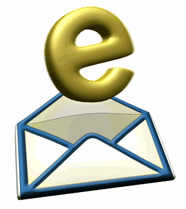 Click to email Jonnie (jonnie@thebuyosphere.com)
Click to email Jonnie (jonnie@thebuyosphere.com)

Open The Buyosphere Toolbox to get FREE exclusive access to proven tools that will help you generate higher shop sales and profits - delivered weekly, right to your inbox!

